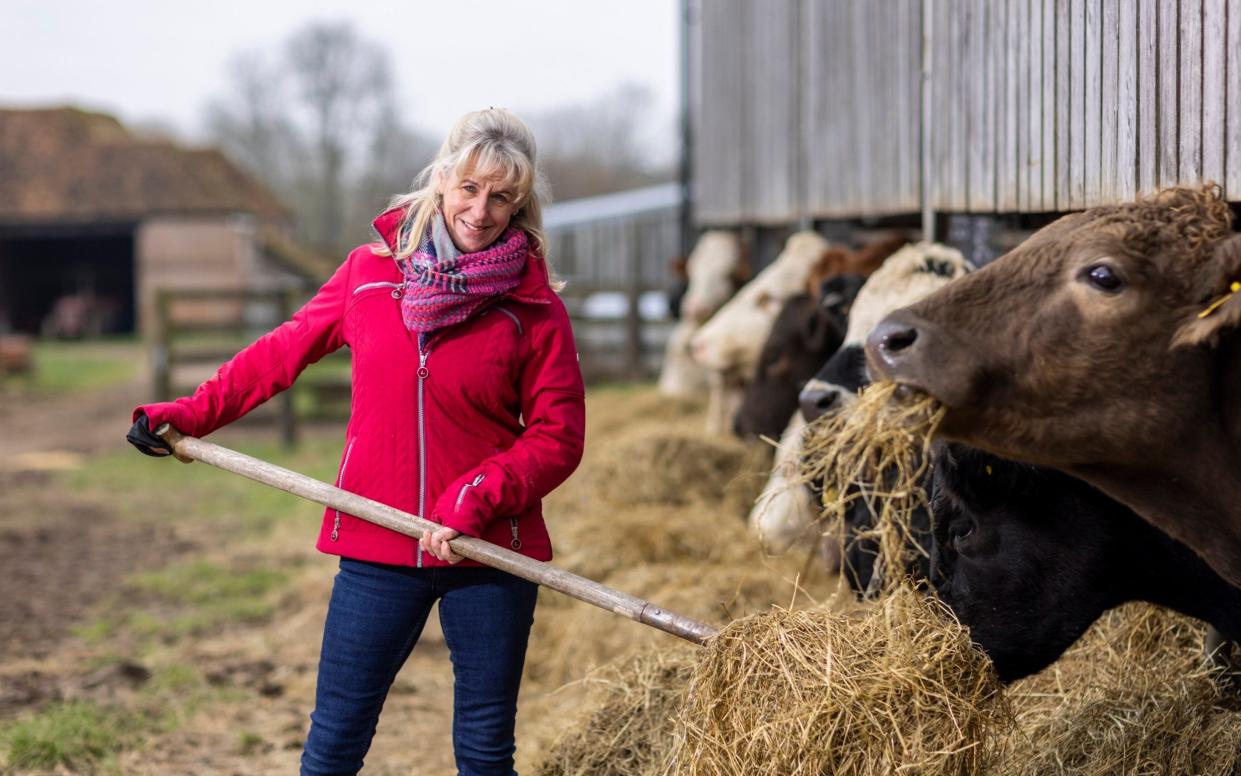Grant Shapps accused of refusing to meet farmers as crop crisis looms

- Oops!Something went wrong.Please try again later.
Grant Shapps has been accused of refusing to meet farmers despite warnings that Britain is “sleepwalking” into a national food crisis amid looming shortages of produce including tomatoes and potatoes.
Minette Batters, president of the National Farmers' Union (NFU), said she had sought a meeting with the Business Secretary ahead of an emergency press conference on Tuesday in which the organisation warned of a dire outlook for Britain's agricultural sector as the cost of fuel, fertiliser and feed soars.
She said that speaking to Mr Shapps was “important” and that it was “frustrating to be told there wasn't time to meet”.
Ms Batters added: “I represent 55,000 farming businesses – I would have thought it would be in their interest to meet.”
She said £60m worth of crops was wasted in Britain in the first half of this year, leaving farmers uncertain about whether to plant new orchards or rip up old ones. Many growers in England and Wales have already cut production by as much as 20pc – 30pc in 2022, according to the NFU, with some saying that in a worst case scenario, they may be forced to completely stop producing fruit and vegetables.
Production of many crops was likely to hit its lowest level this year since records began in 1985, said the NFU.
Ms Batters added: “I want to avoid a situation where consumers ever face any rationing again, ever face lack of choice.
“There are risks if we don’t act, if we don’t come together. It’s in the national interest that we do make sure we are producing the same amount of food as we are now.
“We’re going to have to think radically differently about how we work together if we’re going to keep producing the same number of tomatoes, peppers and cucumbers. Also things like field veg, parsnips, potatoes. Storing these products is very, very costly.”
The NFU has been urging the Government to step in and provide aid for its members, warning fruit and vegetable shortages could follow the current egg shortage, with yields of tomatoes and other crops set to fall to a record low this year. It has also been calling for more “fairness” in the supply chain.

According to NFU data, the price of feed, nitrogen fertiliser, agricultural diesel and wholesale gas have risen 75pc, 240pc, 73pc and 650pc respectively since 2019.
In September, the British Tomato Growers Association warned farmers faced a “unique conflation” of challenges which it said was threatening the future of the UK food production industry and jobs “as never before”.
European farmers have also warned of shortages caused by spiralling energy costs.
Farmers' increasing inability to source enough skilled labourers from abroad and restrictions on trade as a result of Brexit red tape were also raised as an issue.
Julian Marks, group MD of farming company Barfoots of Botley, said: “We used to have an export business, we no longer have an export business. We are an import business and we are now experiencing the additional cost of imports and the extra bureaucracy we’ve had to put into administration.
“[Brexit paperwork] has created further uncertainty. It’s made us much more wary of investment, it’s reduced the size of our business and reduced our access to international markets.”
The Department for Business, Energy and Industrial Strategy (BEIS) did not respond to requests for comment.
